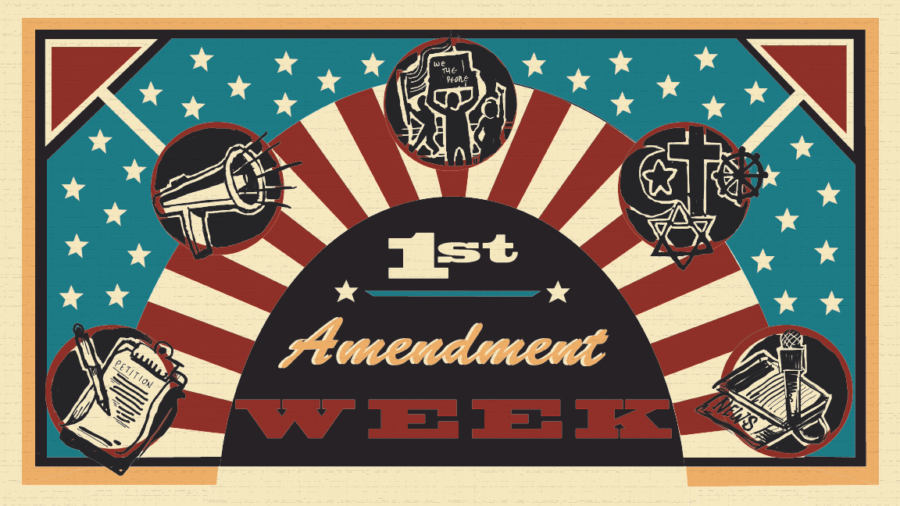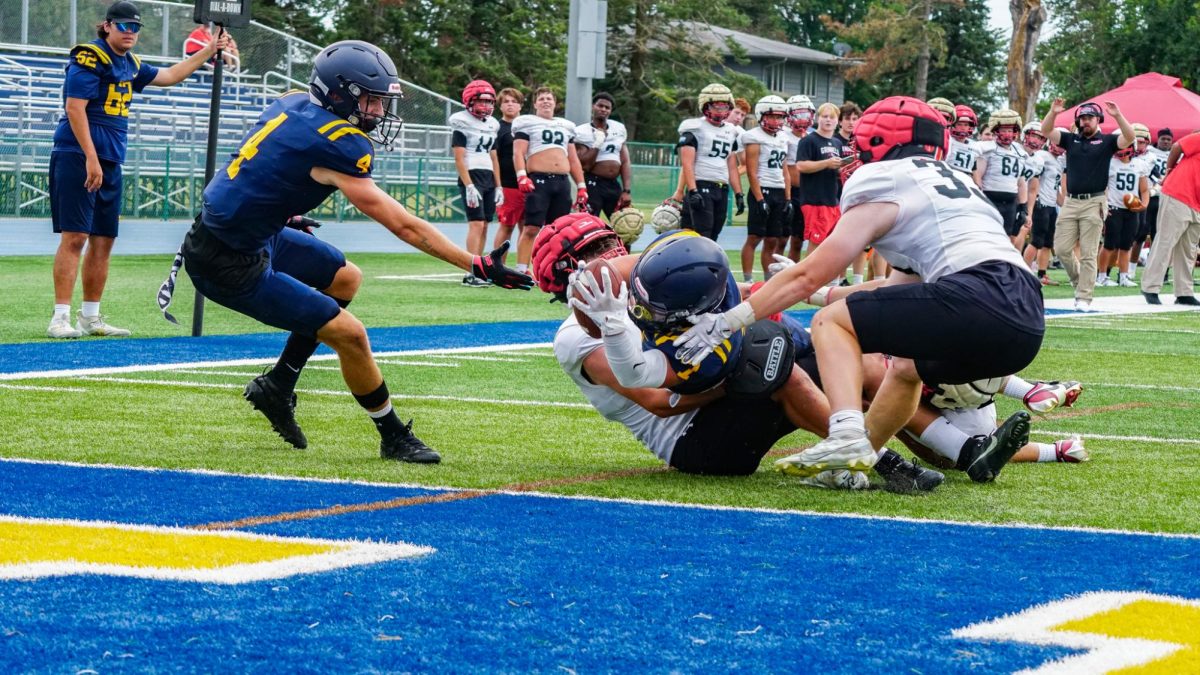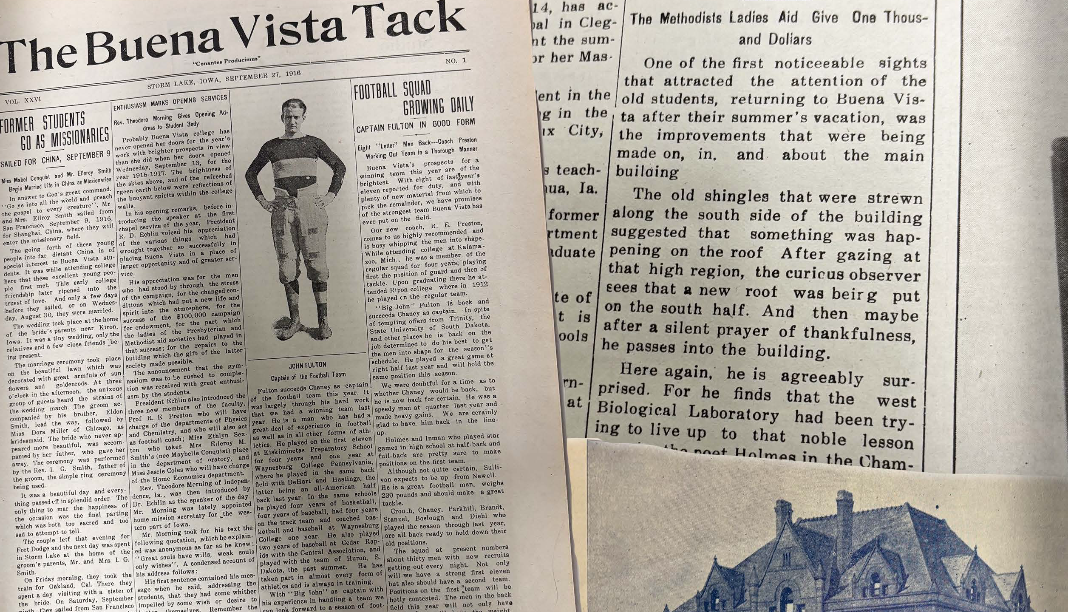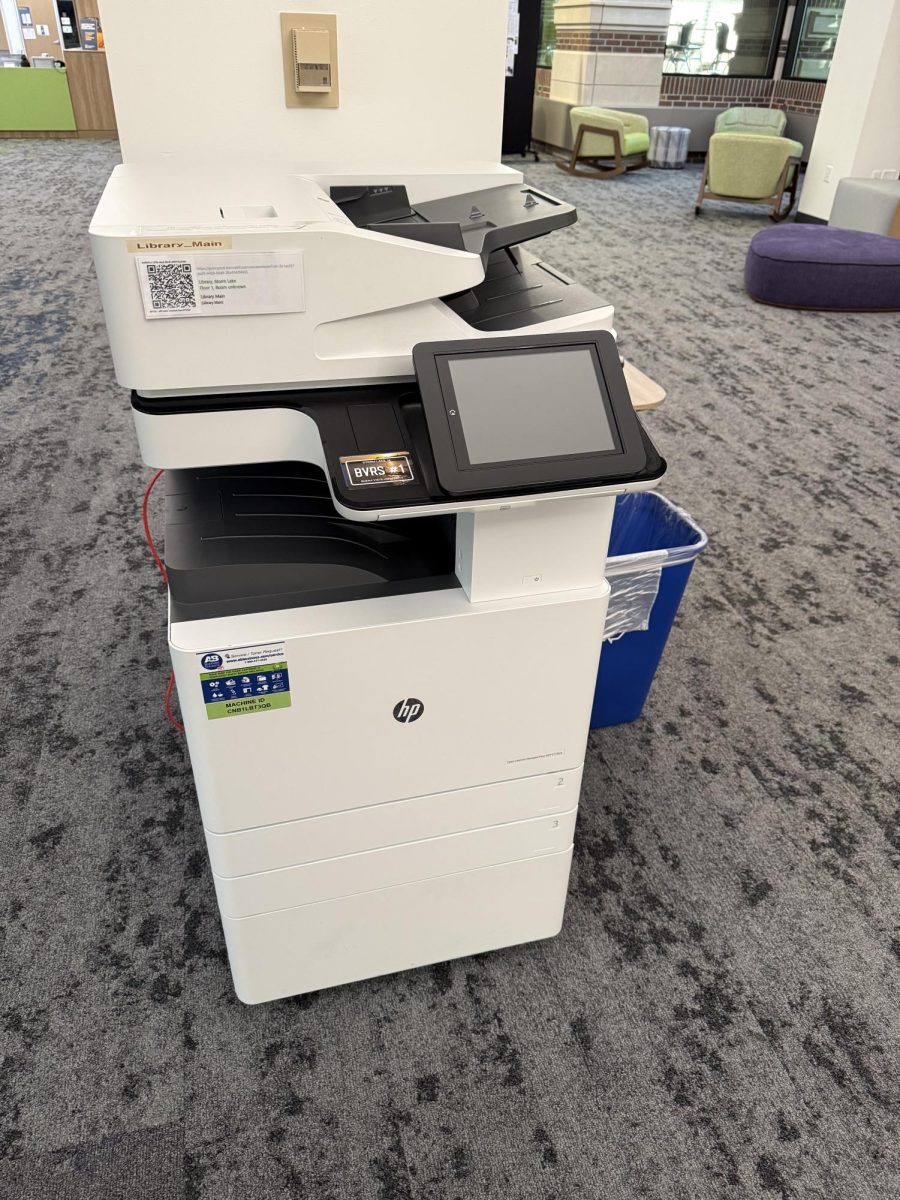Is speech really “free” on social media?
April 29, 2021
“He won because the Election was Rigged. NO VOTE WATCHERS OR OBSERVERS allowed, vote tabulated by a Radical Left privately owned company, Dominion, with a bad reputation & bum equipment that couldn’t even qualify for Texas (which I won by a lot!).”
This tweet by Former President Donald Trump was marked by Twitter with the disclaimer: “Some or all of the content shared in this Tweet is disputed and might be misleading about an election or other civic processes.” As he continued to lie, inflame, and spread misinformation, Trump’s account was removed from Twitter on January 8, 2021.
Following the ban of Trump’s Twitter account many people began to question, how free is one’s speech?
Free speech is a First Amendment freedom. However, not all speech is protected by the First Amendment. Different scholars have different views on unprotected speech but a few categories that are widely known as not protected are, obscenity, defamation, true threats, and incitement to imminent lawless action. However, one type of speech that has caused recent uproar is racial slurs. Racist slurs don’t fit any of these categories according the Court.
Recently, Meyers Leonard, a former center for the Miami Heat, was live streaming Call of Duty Warzone and was caught using an anti-Semitic slur. The release of this clip onto social media led to the suspension of Leonard from all Heat facilities and team activities. Leonard was then traded from the Miami Heat and is currently a free agent. According to Sporting News, Leonard was fined $50,000 by the NBA and lost many of his gaming partnerships that contributed to his streaming platform.
Leonard’s incident was not the first and will most certainly not be the last when it comes to free speech issues. For example, professional streamer Flavio “Jukes” Fernandes was caught using a racial slur on his live stream and was suspended seven days from streaming.
What we can tell from these two instances is that there are social and economic consequences for racial intolerance in today’s world. But what we also must realize is that Americans should not see those penalties as a violation of their First Amendment rights. Clearly, as Leonard’s case illustrates, racial intolerance might just end up costing someone their job. But the Heat’s response to Leonard’s commentary should not be confused with the government stepping in to shut down speech, the latter is what the First Amendment covers. Ultimately meaning, while this is technically allowed, it is ill-advised.
To gain an even better understanding of this issue we can look into the case of Elonis vs United States. Anthony Elonis, a 27-year-old male, adopted the rap persona Tone Dougie and posted lyrics to his Facebook account that appeared to be threatening his wife after his wife left Elonis taking their two children with her. While Elonis was posting his own original lyrics, he argued that his lyrics were similar in theme to rap songs and that he was exercising his First Amendment free speech rights.
Elonis was originally convicted on the idea that a reasonable person would interpret these words as a true threat. Ultimately the Elonis case went to the Supreme Court where it was overturned on the idea that lyrics from a song are unlikely to be interpreted as a real threat. Chief Justice Roberts wrote for the majority. He said, “the law barring threats is satisfied if the defendant transmits a communication for the purpose of issuing a threat, or with knowledge that the communication will be viewed as a threat.”
When talking about the First Amendment, social media, and free speech, there is always going to be some grey area. If Americans do not understand the limits of free speech, social and economic consequences are bound to happen. Not understanding the limits of free speech can cost you your job, it can write your name in history for all the wrong reasons.
According to The State of the First Amendment survey only 64 percent of respondents were able to recall that free speech is a First Amendment right. There is clear evidence that American’s don’t fully understand the guarantee of free speech in the First Amendment, and to avoid social and economic fallout it is critical that we educate ourselves.
Those who don’t fully understand the First Amendment seemingly call any pushback against uncivil commentary, “a violation of their First Amendment rights” when in fact that is simply not true. Websites like, Constitution center, The Freedom Forum, and The Amendment Center can research and read about the First Amendment, or you can ask questions and listen to others. One of the best ways to learn is to listen and ask questions. By asking the tough, uncomfortable questions, we can hear other perspectives on the First Amendment which will offer a fuller picture on this intense topic.








